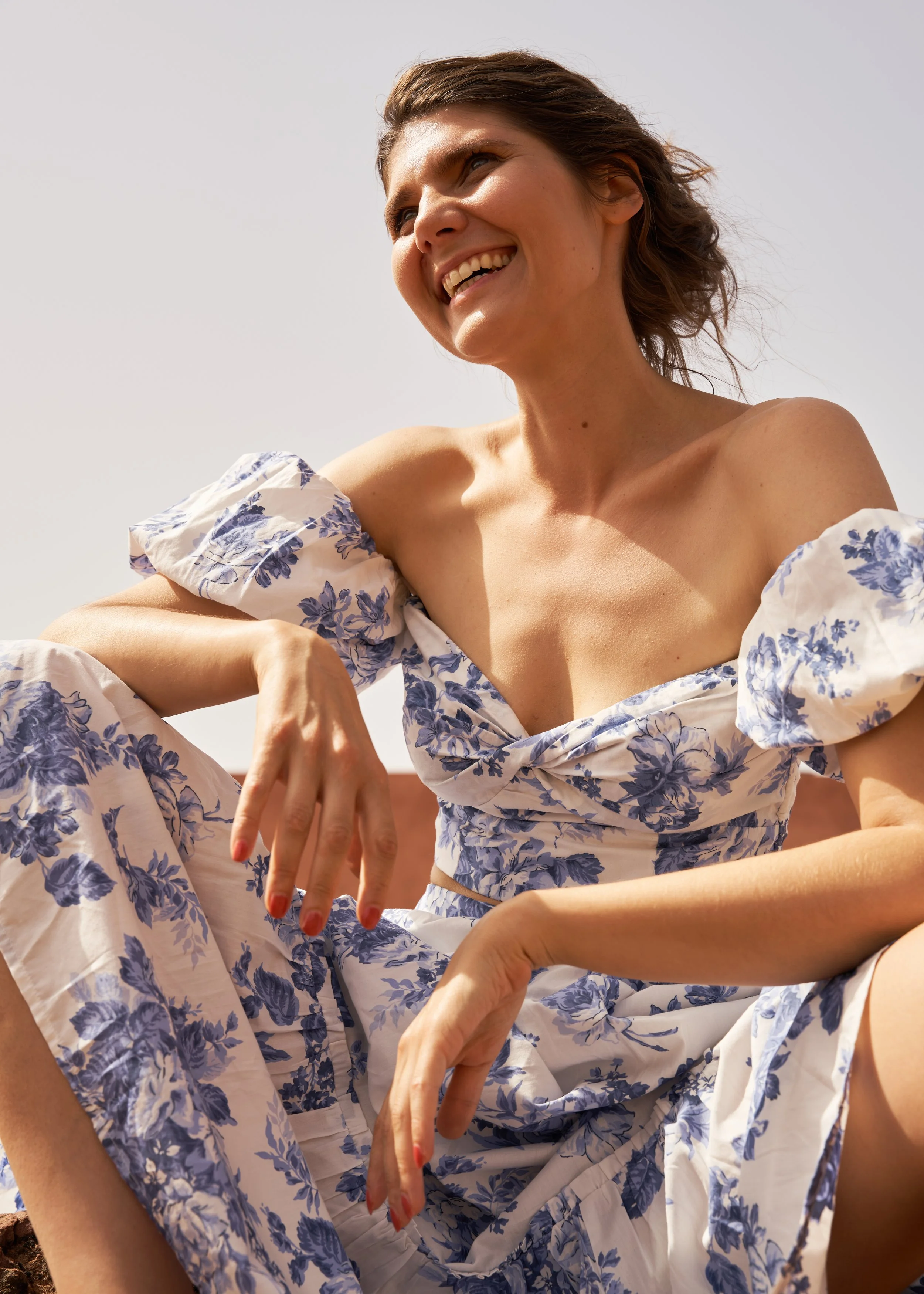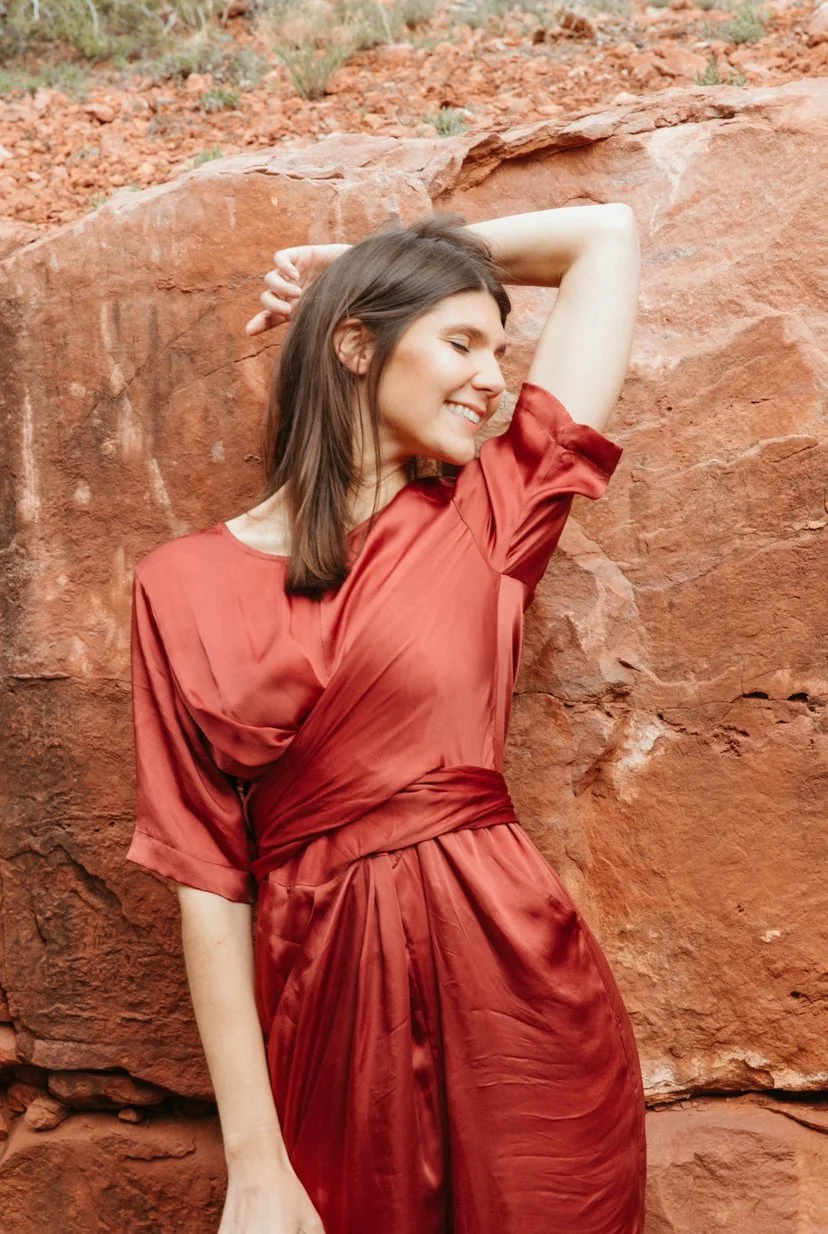VOICED. with Anaïs Bachet
Voice led expression is bravery. It’s using your voice to express emotion, tell stories and to connect. Something that can quite often leave us feeling vulnerable and exposed. So how do we strive for total freedom in that expression?
Anaïs Bachet works in neuroscience-informed coaching. A therapist, a life coach and a guide for creative individuals. Anaïs delves into how the mind and body can work together to unlock greater freedom across creative expression. Also a trained actor and enchanting storyteller. Anaïs combines practical exploration from her own performance background with psychology and cognitive-behavioural therapy.
We’re so grateful that Anaïs could share an insight into her work with us and offers us some grounding advice to further our own voice led practice.
How are you?
Energised and excited. The world feels like it’s fast-forwarding into a new version of itself: rich in media, full of AI, overflowing with potential. It doesn’t have to become dehumanized, though! After a moment of pause and doubtful reflection, I’m choosing to see possibility in this acceleration. I’m learning to surf this new wave instead of fearing it, and that’s where my excitement comes from right now.
Can you explain a little bit about your work?
I help people understand how their mind and body work together so they can perform and create with more ease, confidence, and authenticity. My work combines psychology, neuroscience, and somatic tools to help clients release limiting beliefs, overcome self-doubt, and build a strong, focused, and confident mind.
Whether I’m working with an actor, an athlete, or an entrepreneur, my goal is to help them unlock the old patterns and emotional habits that hold them back and reconnect with the state where creativity, clarity, and authenticity naturally flow.
How does your work impact the creative mind?
The creative mind thrives in safety and curiosity, not chaos and fear. My work helps people understand how their brain and emotions interact so that creativity can flow freely instead of being blocked by anxiety, perfectionism, or self-criticism. When the body feels safe and the mind is grounded, imagination expands - you stop performing to prove and start creating from alignment.
Your work focuses a lot on sustainable growth and emotional resilience. For voice users, the act of using their voice to tell stories is a brave and vulnerable act of expression. Does your work allow for more freedom of expression?
Absolutely. Using one’s voice (literally or metaphorically) requires safety, self-trust, and emotional grounding. My work helps people build that inner foundation so expression no longer feels dangerous or difficult. We focus on resilience not to harden, but to soften the internal resistance that keeps creativity guarded. The more emotionally regulated you are, the freer your voice becomes and the more creative you get. It’s less about controlling the performance and more about letting truth move through you.
What’s the best way to channel personal experiences, good or bad, into authentic creative expression?
Authenticity starts with action, not analysis. Write, sing, paint, speak - and do it imperfectly. That’s where the magic happens. When you allow yourself to create without editing or overthinking, you access something raw and surprising… sometimes even genius!
The key is to express first and decide later what to refine or what you feel comfortable sharing. Creation is a living process; it teaches you who you are as you repeat it. Through practice and imperfection, you find honesty, and that honesty is what moves people. Authenticity isn’t about control, it’s about courage: the courage to let what’s real come through you, unpolished.
If someone has a voice gig and feels overwhelmed or hit by imposter syndrome, what’s one key thing they can do to relax?
Come back to your body, it’s your anchor. Start with the breath (honestly, just download an app), or shake your hands and arms to release nervous energy. Then reframe: think of a moment in your life when you doubted yourself but still found the strength to rise to the occasion. Whether it was another voice gig or not doesn’t matter - it’s about reconnecting with that embodied memory of resilience in the face of challenge. Close your eyes, take the time to connect with that moment, and allow yourself to feel it again in your body.
One more tip: talk to yourself in the second person as often as you can. Instead of “I can do this,” say, “You can do this.” It rewires your brain to experience self-talk as companionship rather than command, soothing the limbic system and making pressure feel less isolating. You become your own ally instead of your own critic.
Lastly, what do you do to switch off, relax, and look after yourself?
I take care of the physiology of my brain and nervous system first: enough protein (about one gram per pound of body weight per day), hydration, omega-3s, and minimal sugar to reduce inflammation. Then I make sure my nervous system has time to reset after intense work, and at least once a day. My go-to practices are yin yoga, yoga nidra, slow walks in nature, or a good sauna session when I can. It’s simple but essential: recovery is where integration happens!
You can follow Anaïs on socials here to keep up with her work or enquire about her coaching services.


